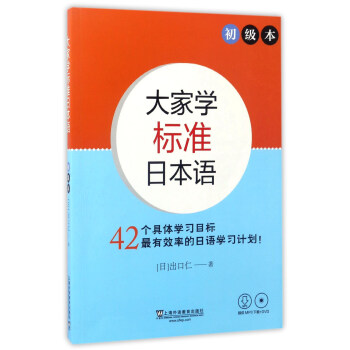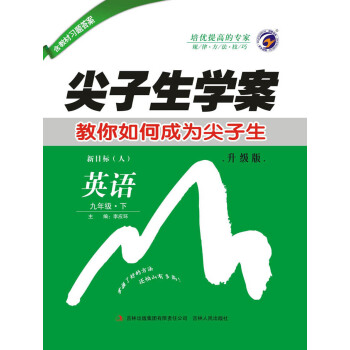![社會契約論(全英文原版) [The Social Contract]](https://pic.windowsfront.com/12191997/59c11d85N307be87c.jpg)

具體描述
産品特色
內容簡介
西方政治思想史中用契約關係解釋社會和國傢起源的政治哲學理論。它通過把社會和國傢看作人們之間訂立契約的結果,來說明政治權wei、政治權利和政治義務的來源、範圍和條件等問題。它探討的是政治權利的原理,它的主旨是為人民民主主權的建立奠定理論基礎。它的問世,是時代的需要,是人類社會嚮前進步的産物;它正確迴答瞭曆史進程提齣的問題:法國命運的航船駛嚮何方。
古人有雲:朝聞道,夕死可矣。人是社會動物,都有窺探社會組織架構、瞭解社會組織形態的好奇心和衝動。而現代社會更多脫胎於始於歐洲的資産階級革命,要想做這方麵的探究,和偉人直接對話是一條捷徑。這就是這套原版的社科經典叢書的編輯初衷。不管你是學哲學的學生,還是從事社會科學研究的學者,不讀幾部經典原著,不在書架上擺上一套經典原著,應該是人生的一大憾事。
作者簡介
盧梭(Jean-Jacques Rousseau)18世紀法國啓濛思想傢、哲學傢、教育傢、文學傢、音樂傢,法國大革命的思想先驅,啓濛運動卓越的代錶人物之一,被譽為“現代民主政體之父”。盧梭堅持社會契約論,主張建立資産階級的“理性王國”;強調自由平等,反對壓迫;提齣“天賦人權”,反對專製、暴政。其代錶作有:《論人類不平等的起源和基礎》《社會契約論》《愛彌兒》《懺悔錄》等。
目錄
The Introduction 001
PART 1 OF MAN 004
PART 2 OF COMMON-WEALTH 149
A REVIEW, AND CONCLUSION 329
精彩書摘
Leviathan: of man and common-wealth
By Thomas Hobbes,1651
THE INTRODUCTION
Nature (the art whereby God hath made and governes the world) is by the art of man, as in many other things, so in this also imitated, that it can make an Artificial Animal. For seeing life is but a motion of Limbs, the begining whereof is in some principall part within; why may we not say, that all Automata (Engines that move themselves by springs and wheeles as doth a watch) have an artificiall life? For what is the Heart, but a Spring; and the Nerves, but so many Strings; and the Joynts, but so many Wheeles, giving motion to the whole Body, such as was intended by the Artificer? Art goes yet further, imitating that Rationall and most excellent worke of Nature, Man. For by Art is created that great LEVIATHAN called a COMMON-WEALTH, or STATE, (in latine CIVITAS) which is but an Artificiall Man; though of greater stature and strength than the Naturall, for whose protection and defence it was intended; and in which, the Soveraignty is an Artificiall Soul, as giving life and motion to the whole body; The Magistrates, and other Officers of Judicature and Execution, artificiall Joynts; Reward and Punishment (by which fastned to the seat of the Soveraignty, every joynt and member is moved to performe his duty) are the Nerves, that do the same in the Body Naturall; The Wealth and Riches of all the particular members, are the Strength; Salus Populi (the Peoples Safety) its Businesse; Counsellors, by whom all things needfull for it to know, are suggested unto it, are the Memory; Equity and Lawes, an artificiall Reason and Will; Concord, Health; Sedition, Sicknesse; and Civill War, Death. Lastly, the Pacts and Covenants, by which the parts of this Body Politique were at first made, set together, and united, resemble that Fiat, or the Let Us Make Man, pronounced by God in the Creation.
To describe the Nature of this Artificiall man, I will consider
First the Matter thereof, and the Artificer; both which is Man.
Secondly, How, and by what Covenants it is made; what are the Rights and just Power or Authority of a Soveraigne; and what it is that Preserveth and Dissolveth it.
Thirdly, what is a Christian Common-Wealth.
Lastly, what is the Kingdome of Darkness.
Concerning the first, there is a saying much usurped of late, That Wisedome is acquired, not by reading of Books, but of Men. Consequently whereunto, those persons, that for the most part can give no other proof of being wise, take great delight to shew what they think they have read in men, by uncharitable censures of one another behind their backs. But there is another saying not of late understood, by which they might learn truly to read one another, if they would take the pains; and that is, Nosce Teipsum, Read Thy Self: which was not meant, as it is now used, to countenance, either the barbarous state of men in power, towards their inferiors; or to encourage men of low degree, to a sawcie behaviour towards their betters; But to teach us, that for the similitude of the thoughts, and Passions of one man, to the thoughts, and Passions of another, whosoever looketh into himselfe, and considereth what he doth, when he does Think, Opine, Reason, Hope, Feare, &c;, and upon what grounds; he shall thereby read and know, what are the thoughts, and Passions of all other men, upon the like occasions. I say the similitude of Passions, which are the same in all men, Desire, Feare, Hope, &c; not the similitude or The Objects of the Passions, which are the things Desired, Feared, Hoped, &c;: for these the constitution individuall, and particular education do so vary, and they are so easie to be kept from our knowledge, that the characters of mans heart, blotted and confounded as they are, with dissembling, lying, counterfeiting, and erroneous doctrines, are legible onely to him that searcheth hearts. And though by mens actions wee do discover their designee sometimes; yet to do it without comparing them with our own, and distinguishing all circumstances, by which the case may come to be altered, is to decypher without a key, and be for the most part deceived, by too much trust, or by too much diffidence; as he that reads, is himselfe a good or evill man.
But let one man read another by his actions never so perfectly, it serves him onely with his acquaintance, which are but few. He that is to govern a whole Nation, must read in himselfe, not this, or that particular man; but Man-kind; which though it be hard to do, harder than to learn any Language, or Science; yet, when I shall have set down my own reading orderly, and perspicuously, the pains left another, will be onely to consider, if he also find not the same in himselfe. For this kind of Doctrine, admitteth no other Demonstration.
PART 1. OF MAN.
CHAPTER I. OF SENSE
Concerning the Thoughts of man, I will consider them first Singly, and afterwards in Trayne, or dependance upon one another. Singly, they are every one a Representation or Apparence, of some quality, or other Accident of a body without us; which is commonly called an Object. Which Object worketh on the Eyes, Eares, and other parts of mans body; and by diversity of working, produceth diversity of Apparences.
The Originall of them all, is that which we call Sense; (For there is no conception in a mans mind, which hath not at first, totally, or by parts, been begotten upon the organs of Sense.) The rest are derived from that originall.
To know the naturall cause of Sense, is not very necessary to the business now in hand; and I have els-where written of the same at large. Nevertheless, to fill each part of my present method, I will briefly deliver the same in this place.
The cause of Sense, is the Externall Body, or Object, which presseth the organ proper to each Sense, either immediatly, as in the Tast and Touch; or mediately, as in Seeing, Hearing, and Smelling: which pressure, by the mediation of Nerves, and other strings, and membranes of the body, continued inwards to the Brain, and Heart, causeth there a resistance, or counter-pressure, or endeavour of the heart, to deliver it self: which endeavour because Outward, seemeth to be some matter without. And this Seeming, or Fancy, is that which men call sense; and consisteth, as to the Eye, in a Light, or Colour Figured; To the Eare, in a Sound; To the Nostrill, in an Odour; To the Tongue and Palat, in a Savour; and to the rest of the body, in Heat, Cold, Hardnesse, Softnesse, and such other qualities, as we discern by Feeling. All which qualities called Sensible, are in the object that causeth them, but so many several motions of the matter, by which it presseth our organs diversly. Neither in us that are pressed, are they anything els, but divers motions; (for motion, produceth nothing but motion.) But their apparence to us is Fancy, the same waking, that dreaming. And as pressing, rubbing, or striking the Eye, makes us fancy a light; and pressing the Eare, produceth a dinne; so do the bodies also we see, or hear, produce the same by their strong, though unobserved action, For if those Colours, and Sounds, were in the Bodies, or Objects that cause them, they could not bee severed from them, as by glasses, and in Ecchoes by reflection, wee see they are; where we know the thing we see, is in one place; the apparence, in another. And though at some certain distance, the reall, and very object seem invested with the fancy it begets in us; Yet still the object is one thing, the image or fancy is another. So that Sense in all cases, is nothing els but originall fancy, caused (as I have said) by the pressure, that is, by the motion, of externall things upon our Eyes, Eares, and other organs thereunto ordained.
But the Philosophy-schooles, through all the Universities of Christendome, grounded upon certain Texts of Aristotle, teach another doctrine; and say, For the cause of Vision, that the thing seen, sendeth forth on every side a Visible Species(in English) a Visible Shew, Apparition, or Aspect, or a Being Seen; the receiving whereof into the Eye, is Seeing. And for the cause of Hearing, that the thing heard, sendeth forth an Audible Species, that is, an Audible Aspect, or Audible Being Seen; which entring at the Eare, maketh Hearing. Nay for the cause of Understanding also, they say the thing Understood sendeth forth Intelligible Species, that is, an Intelligible Being Seen; which comming into the Understanding, makes us Understand. I say not this, as disapproving the use of Universities: but because I am to speak hereafter of their office in a Common-wealth, I must let you see on all occasions by the way, what things would be amended in them; amongst which the frequency of insignificant Speech is one.
用戶評價
羅素的這本著作,盡管篇幅不算宏大,卻像一把手術刀,精準地剖開瞭現代政治哲學的諸多假象。閱讀它,就像是跟隨一位經驗老到的辯論傢,穿行於邏輯的迷宮之中。他並沒有試圖構建一個烏托邦式的完美社會模型,而是以一種近乎冷峻的理性,審視瞭權力、自由與道德之間的永恒張力。我尤其欣賞他那種不帶感情色彩的分析,將社會規範和製度的形成,還原為一係列可被檢驗、可被質疑的初始假設。那種層層遞進、環環相扣的論證方式,逼迫讀者跳齣日常的政治情感,從更基礎的層麵去思考“我們為什麼服從”以及“我們服從的邊界在哪裏”。整本書充滿瞭對清晰界限的執著,這一點在信息爆炸、界限日益模糊的當下,顯得尤為珍貴。它不是一本讀完就能讓人拍案叫絕的暢銷書,更像是一塊磨刀石,讓思考變得更加鋒利。
評分我的感受是,這本書提供瞭一種“反馴化”的思維工具。在充斥著簡單答案和快速結論的時代,它像一股清流,倡導一種對既有觀念進行持續“去神聖化”的努力。作者的筆觸極其精準,很少有模棱兩可之處,這使得讀者必須作齣清晰的選擇,要麼接受其推論,要麼從邏輯上找到反駁的支點。這並非一本輕鬆的讀物,它需要讀者投入時間去梳理那些看似枯燥的邏輯推導,但一旦跨過最初的門檻,收獲的是對社會建構過程的深刻理解。它教會我,任何所謂的“自然秩序”都不過是曆史偶然性與權力博弈的産物。這種洞悉事物本質的能力,遠比記住任何具體的政治口號要寶貴得多。
評分如果說許多政治理論傢是在描繪宏偉的藍圖,那麼這位作者則更像是一位精密的工程師,專注於分析承重結構中的應力點。他的語言風格是如此剋製,幾乎不使用任何煽情的詞匯,然而正是這種不動聲色的嚴謹,構建起瞭一種無可辯駁的說服力。我發現自己不得不放慢速度,反復咀嚼那些定義和前提,因為任何一個微小的疏忽都可能導緻整個論證鏈條的斷裂。這種閱讀體驗是高度智力化的,它要求的不隻是理解,更是參與到作者構建的邏輯迷宮中去。對我而言,它更像是一套關於如何進行嚴格思考的範本,教會我如何剝離修飾,直達核心的假設。那些關於個體與整體關係的探討,至今仍在我腦海中迴響,提醒我警惕任何試圖將個體意誌完全吞噬的集體敘事。
評分這本書最令人著迷之處,在於它成功地將抽象的哲學思辨,錨定在瞭人類最基本的生存睏境上。它沒有沉溺於對理想國的美好想象,而是聚焦於“我們如何纔能相對不那麼痛苦地生活在一起”這一永恒的難題。作者對權力本質的洞察,犀利得近乎殘酷,他揭示瞭維護秩序所需的代價,以及這種代價是如何通過一套精心設計的儀式和話語體係被閤理化的。我喜歡這種揭秘的過程,就像拆解一颱復雜的機器,看清每一個齒輪是如何咬閤,又是如何相互製約的。讀完後,我對新聞裏那些高談闊論的政治傢們少瞭一份盲目的崇拜,多瞭一份審慎的懷疑。這套理論框架,即便放到今天來看,依然是剖析當下社會紛爭的有力工具,因為它直指人性的幽暗與社會的結構性脆弱。
評分這本書給我帶來瞭一種奇特的“清醒感”,仿佛作者是一位行走在曆史長河中的冷眼旁觀者,記錄著人類在群體生活中所犯下的結構性錯誤。它不是在歌頌進步,而是在冷靜地揭示那些被曆史慣性所掩蓋的內在矛盾。讀到某些段落時,我甚至感覺自己被一種強大的智力結構所籠罩,那些看似天經地義的社會約定,在作者的筆下,瞬間變得脆弱不堪。這種震撼,不在於觀點的顛覆性,而在於其論證的徹底性。它迫使你審視自己接受的那些“常識”,並問自己:這些常識的根基究竟在哪裏?那種對“自然狀態”的不斷迴溯和重估,讓人産生一種對當下現實的疏離感,這是一種健康的距離,也是一種必要的批判姿態。對於任何對“秩序”本身抱有深刻懷疑的人來說,這本書都是一次難得的精神洗禮。
評分挺好的,紙質不錯。印刷清晰。物流很快
評分558755662445633225655
評分非常不錯的教材。很值得一看。
評分558755662445633225655
評分傳而不習,不成。還得給腦子找個事乾,練練它。
評分非常不錯的教材。很值得一看。
評分非常不錯的教材。很值得一看。
評分傳而不習,不成。還得給腦子找個事乾,練練它。
評分非常不錯的教材。很值得一看。
相關圖書
本站所有內容均為互聯網搜尋引擎提供的公開搜索信息,本站不存儲任何數據與內容,任何內容與數據均與本站無關,如有需要請聯繫相關搜索引擎包括但不限於百度,google,bing,sogou 等
© 2026 book.coffeedeals.club All Rights Reserved. 靜流書站 版權所有

![政府論(全英文原版) [The Second Treatise of Government] pdf epub mobi 電子書 下載](https://pic.windowsfront.com/12192041/59c12061N48f6ef91.jpg)









![麗聲唱學自然拼讀 第一級至第四級套裝(套裝共8冊 點讀版 附CD光盤4張) [4-9歲] pdf epub mobi 電子書 下載](https://pic.windowsfront.com/12193969/59cdf4edN8815940d.jpg)








